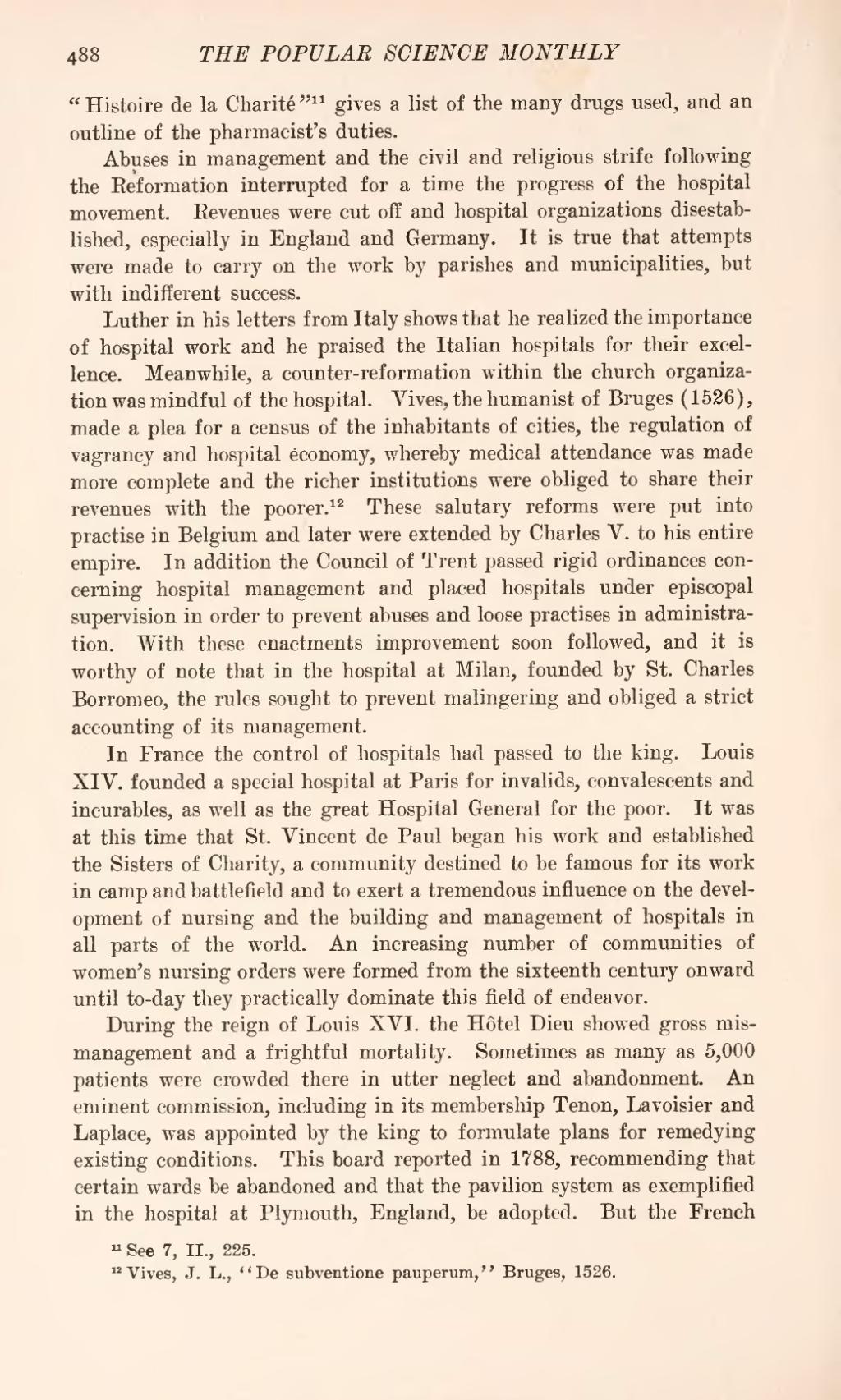"Histoire de la Charité"[1] gives a list of the many drugs used, and an outline of the pharmacist's duties.
Abuses in management and the civil and religious strife following the Reformation interrupted for a time the progress of the hospital movement. Revenues were cut off and hospital organizations disestablished, especially in England and Germany. It is true that attempts were made to carry on the work by parishes and municipalities, but with indifferent success.
Luther in his letters from Italy shows that he realized the importance of hospital work and he praised the Italian hospitals for their excellence. Meanwhile, a counter-reformation within the church organization was mindful of the hospital. Vives, the humanist of Bruges (1526), made a plea for a census of the inhabitants of cities, the regulation of vagrancy and hospital economy, whereby medical attendance was made more complete and the richer institutions were obliged to share their revenues with the poorer.[2] These salutary reforms were put into practise in Belgium and later were extended by Charles V. to his entire empire. In addition the Council of Trent passed rigid ordinances concerning hospital management and placed hospitals under episcopal supervision in order to prevent abuses and loose practises in administration. With these enactments improvement soon followed, and it is worthy of note that in the hospital at Milan, founded by St. Charles Borromeo, the rules sought to prevent malingering and obliged a strict accounting of its management.
In France the control of hospitals had passed to the king. Louis XIV. founded a special hospital at Paris for invalids, convalescents and incurables, as well as the great Hospital General for the poor. It was at this time that St. Vincent de Paul began his work and established the Sisters of Charity, a community destined to be famous for its work in camp and battlefield and to exert a tremendous influence on the development of nursing and the building and management of hospitals in all parts of the world. An increasing number of communities of women's nursing orders were formed from the sixteenth century onward until to-day they practically dominate this field of endeavor.
During the reign of Louis XVI. the Hôtel Dieu showed gross mismanagement and a frightful mortality. Sometimes as many as 5,000 patients were crowded there in utter neglect and abandonment. An eminent commission, including in its membership Tenon, Lavoisier and Laplace, was appointed by the king to formulate plans for remedying existing conditions. This board reported in 1788, recommending that certain wards be abandoned and that the pavilion system as exemplified in the hospital at Plymouth, England, be adopted. But the French
